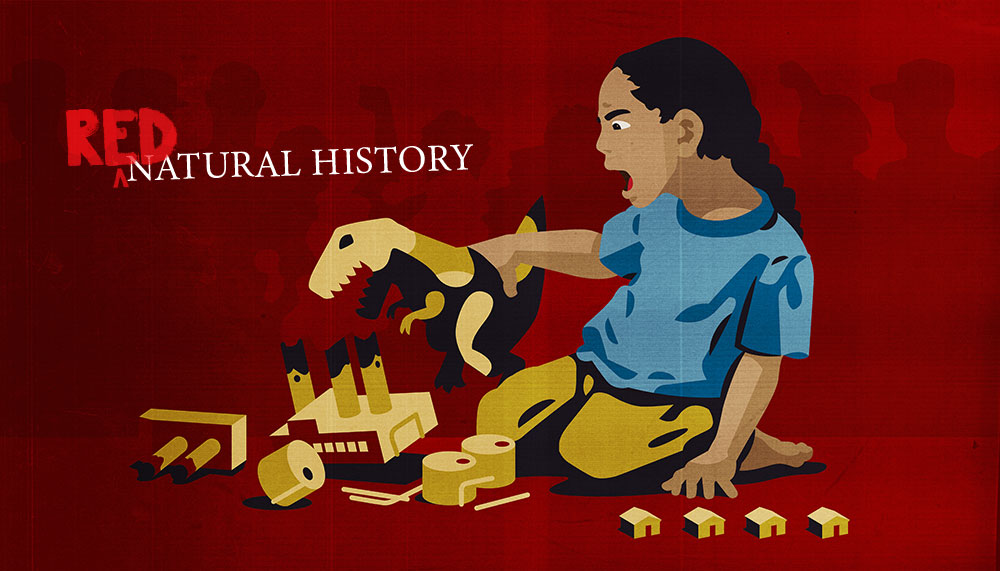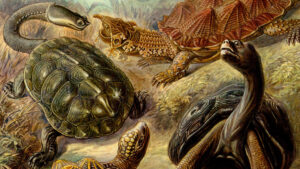What is Red Natural History?
Across the country and around the world, people are tearing down colonial and Confederate monuments, fighting for the repatriation of cultural items stolen by imperialists centuries ago, calling for #landback, and building power in shared struggles for a just and livable future. Out of this context, we’ve assembled a group of scholar-activists to think through the colonial logics imprinted in our institutions of historic preservation, science education, and conservation. Together, we’re working to push past the well-earned critiques of natural history, and toward the positive articulation of another.
We’re calling this alternative “red natural history“.
A new initiative launched by The Natural History Museum in partnership with scholar-activists from natural history fields, Red Natural History debuts with a collection of essays that unpack the colonial traditions, histories, and logics that penetrate disciplines associated with natural history, and help to give form to a non-extractive, non-colonial perspective on the world.
Edited by our team and published in Social Text, these eight essays offer an array of perspectives that activists, scientists, scholars, and heritage professionals can draw upon in efforts to transform institutions and advance social and environmental justice:
- Rosalyn LaPier (Blackfeet/Métis) explores the deficit of Indigenous representation and decision-making in contemporary museum practice, and the implications for revitalizing traditional languages and lifeways.
- Andrew Curley (Diné) takes on the history of paleontology, considering how dinosaur remains excavated from Navajo Nation without permission have been reactivated in recent struggles for Indigenous sovereignty and land rights.
- Ashley Dawson challenges the legacy of social Darwinism, drawing on the Russian revolutionary and scientist Peter Kropotkin’s book Mutual Aid: A Factor of Evolution to chart a counter-tradition of biology that emphasizes the role of cooperation in species evolution.
- Kai Bosworth discusses the tradition of radical geography that emerged in the 1960s, exploring how geographers today can meaningfully contribute to Indigenous resurgence and place-based struggles.
- Natchee Blu Barnd proposes that ethnic studies, as a discipline organized around giving voice to oppressed peoples, can disrupt natural history’s colonial frameworks and material harms.
- Billy Fleming shows how landscape architecture has been entangled in finance capital before describing concrete ways that the discipline can serve the building of a sustainable and just future.
- Alberto Acosta, the former minister of mining and natural resources for the Ecuadorian government, who helped inscribe the Rights of Nature into the country’s constitution, makes the case for how the Andean concept of Buen Viver can point us toward a future beyond extractive capitalism.
- Dina Gilio-Whitaker (Colville Confederated Tribes) advances a methodology of Indigenous futurism. Starting from the hypothesis that there is no future without decolonization, she works backwards to imagine the shifts that must take place to turn against the tides of climate catastrophe.
Far from the final word on “red natural history,” this new essay collection marks a beginning, the launch of an open discussion about the past, present, and future of natural history. It does not aim for consensus, but rather seeks to build energy around a term that can hold together the insurgent work of those struggling to transform natural history fields, logics, and practices, providing a common guidepost and orientation around which we can organize.
We’d love for you to join the conversation. What does a natural history for the future look like, and how can we get there? Share your thoughts on social media with the hashtag #RedNaturalHistory.





